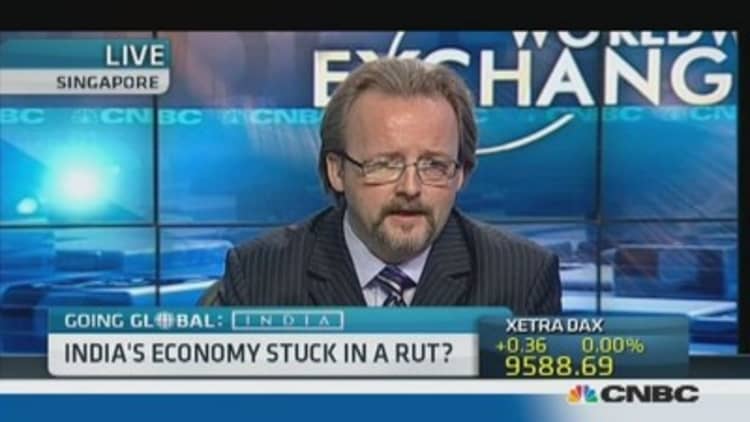Has dynastic politics had its day in the world's biggest democracy?
That is the tempting conclusion to be drawn from the fact that India's two most prominent politicians today come from ordinary families with no notable historical involvement in politics or government.
(Read more: Street fighting erupts as India heads for election)
As some 800 million Indian voters prepare for a general election to be held over five weeks in April and May (the results will be announced on May 16), they have identified a new breed of politician in candidates such as Narendra Modi and Arvind Kejriwal.
It is not that the two men share an ideology. On the contrary, they are bitter rivals. Mr Modi is the prime ministerial candidate of the Bharatiya Janata party, the Hindu nationalist opposition to the governing Congress party.
Mr Kejriwal is an anti-corruption campaigner of leftist sympathies whose Aam Aadmi or Common Man party has caught the public's imagination over the past year and whose popularity could limit the scale of Mr Modi's expected election victory.
Both, however, come from relatively humble backgrounds. Mr Modi, a professional politician who has run the state of Gujarat for the past 12 years, boasts that his father was a tea-seller.
Mr Kejriwal is a former tax inspector and engineer's son who won entry to one of the highbrow Indian Institutes of Technology and passed the civil service exams through his own efforts.
Those life stories are in stark contrast to the privileged upbringing of Rahul Gandhi, the Congress figurehead and son of party leader Sonia Gandhi.
(Read more: India to kick off world's biggest election on April 7)
Descended from no less than three Indian prime ministers – Jawaharlal Nehru, Indira Gandhi and Rajiv Gandhi – Mr Gandhi has never been in government. Widely regarded as amiable but ineffective, he is nevertheless marketed as a future prime minister by virtue of his illustrious forebears.
"Both Modi and Kejriwal – part of their attraction is precisely that they are outsiders, and have no political lineage," says Ashutosh Varshney, a political scientist and author of a new book on Indian democracy. Famous names that once impressed rural Indians have less impact in the country's fast-growing cities, he says.
Gurcharan Das, who used to run the Indian operations of consumer goods group Procter & Gamble, says young members of the Indian middle class are offended by brazen displays of nepotism and aware of the dangers of employing the unqualified.

"There's a real problem with putting your nephew into a job where he cannot perform. You lose market share," he says. "So it's a combination of competitive markets and a mindset which says that 'I have come up through my own hard work, and why should that guy over there get a head-start because of who he is?'."
Nepotism in India's extraordinarily corrupt politics is by no means confined to Congress. Wives, children, cousins, uncles and minor royalty are deployed by almost all parties in constituencies where name recognition is important.
(Read more: Poll indicates landslide victory by India's BJP Party)
Akhilesh Yadav, the chief minister of Uttar Pradesh – the most populous state in the union – is the son of Samajwadi party leader Mulayam Singh Yadav, who was three times chief minister himself. The younger Yadav's wife and two uncles are also in politics.
Patrick French, a political scientist, calls such political families "hyperconnected" and notes that two-thirds of sitting members of parliament under the age of 40 have a close relative in politics, while nine out of 10 young Congress MPs hold what are effectively hereditary seats. MPs from established political dynasties, furthermore, are nearly five times richer than the unconnected.
More from the Financial Times:
Greece property – land of the gods going for a song
Investors pour into European property
Soros buys stake in Spain's FCC
Yet opinion polls show that support for Congress is likely to collapse in the coming election. Mr Modi's rise to national fame over the past two years – largely the result of his personal ambition and powerful oratory – and the recent surge in support for Mr Kejriwal suggest that young, educated Indians are increasingly impressed more by merit than by birth.
Ramachandra Guha, a historian, says that Congress has relied excessively on the Nehru-Gandhi dynasty, "a family whose charisma declines with every generation". Mr Varshney agrees, judging that Mr Modi's deliberate focus on his humble origins has helped change the way Indians think, while Congress faces diminishing returns from its reliance on the first family.
"Dynasty in Congress is like chemical fertilizer in agriculture," he says. "It increases your yield today but it hurts the productivity of the farm in the long run."

